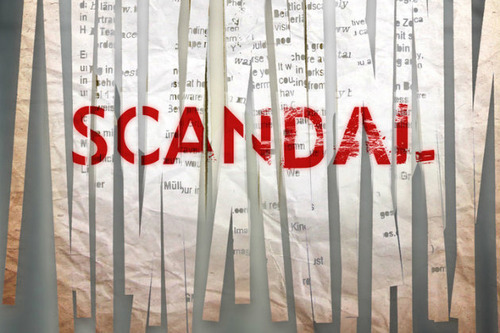
Image credit: ABC Television
The mantra goes: “No press is bad press.” But in the age of always-on consumers, where feedback flies across channels as fast as the speed of light, is that still the case?
Over the past few years, several CEOs and top executives have been denounced by press – and even consumers – for aligning their personal beliefs with the values of their brands and businesses.
With this season of ABC’s hit show “Scandal” in full swing, the RTP editors took some time to discuss the CEO scandals that resonated with them the most, and the impact they think personal and/or political believes had on the business. Here’s what we had to say:
Debbie Hauss, Editor-in-Chief: Chick-fil-A’s CEO Dan Cathy got himself in some hot water – or should I say a vat of hot frying oil – following statements opposing gay marriage in 2012. The company had donated more than $8 million dollars to a charity opposing LGBT rights. His statements created a political backlash on both sides. Yet this is an example of how negative publicity can help a business – sales rose 12% in 2012. But in March 2014, as the chain moved into big cities like Chicago, NYC and LA, Cathy changed his tune and stated that he regretted making those public statements; he also asserted that Chick-fil-A does not discriminate based on sexual orientation. I’m not sure I believe him.
Alicia Fiorletta, Senior Editor: I’m all for promoting a healthy, active lifestyle, but I think the folks at Lululemon took things a bit too far while trying to bounce back from what I like to call “the sheer pants scandal.” The brand took the active measures to respond be revising their product testing processes and pulling defective products off the shelves. But things took a turn for the worse when executives started blaming their consumers for the pants being in such a condition. Word to the wise: If you expect consumers to pay $80 for a pair of workout pants, maybe don’t insult them. Now-ex-chairman Chip Wilson bluntly said: “Some women’s bodies just don’t actually work for it. It’s really about the rubbing through the thighs, how much pressure is there.” Wilson tried to make good by releasing a video apology but very few fell for it. He resigned from his position shortly after and Lululemon’s stock performance has been volatile ever since.
Kim Zimmermann, Managing Editor: Paula Deen stands out to me, not so much for what she did and said, but for how she handled herself during and after the crisis. She did not have very good PR advice and did a series of interviews and video postings to try to convince people that she, and her brand, were still worthy. They weren’t. She should have listened to the advice of her friend and former President Jimmy Carter. He recommended that she step out of the spotlight and give people time to forgive her.
Glenn Taylor, Associate Editor: Michael Jeffries of Abercrombie & Fitch has been a lightning rod for criticism over the past few years, specifically in discussing the intended audience of the company. These sentiments extend from who he wants wearing the A&F brand all the way to who he wants working in the brand’s retail stores. It’s one thing to promote the clothing style to a certain demographic, but a whole new issue arises once you make statements that blatantly alienate potential consumers. While Jeffries’ beliefs aren’t a major reason Abercrombie was dropped by the S&P 500 in late 2013, investors would have reason to believe in the company again if it appeared to be more welcoming.
Brian Anderson, Associate Editor: Papa Johns CEO John Schnatter always seemed to avoid the negative press back in the day – until Obamacare started to take form. Schnatter managed to not only upset his consumers, but also his employees when he announced that he would reduce employee hours to under 30 hours per week. This would allow him to avoid offering his employees health benefits. Public and employee outcry grew so loud that Schnatter had to write an op-ed piece stating it was just "speculation of actions he could take.” In the end, upsetting your employees with your personal beliefs is probably the worst thing you can do.
What CEO scandal do you think had the most impact? Share your thoughts in the comments section below!






